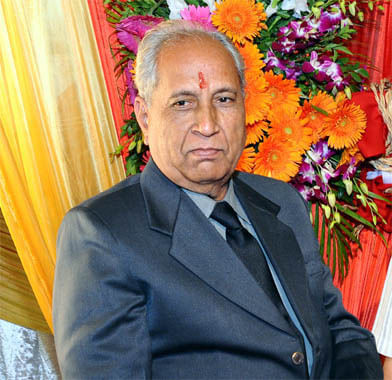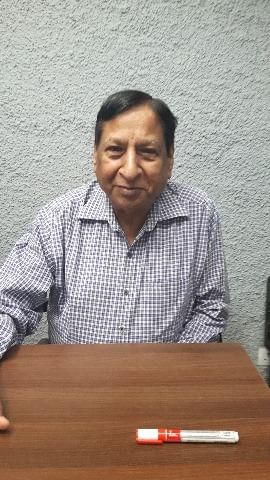Get the App
For Doctors
Login/Sign-up
About
Health Feed
Find Doctors
Health Packages
AllQ&AsTipsQuizzes
Cardiac Catheterization Questions
Asked for male, 49 years old from Pune
Share
Bookmark
Report
MBBS, DMRD, MD - Radio Diagnosis, FIIM(A...read more
Non-Invasive Conservative Cardiac Care Specialist•Ahmednagar
Health Query
Share
Bookmark
Report
Dear Lybrateuser,
-Your friend could be having sinus bradycardia, a condition in which the resting heart rate is 60 or less than that
-this disorder is due to problem with the electrical system of the heart, if the heart beats very slowly then it can not pump enough blood to meet the body's needs & sometimes it may become life threatening
-his hypertension & depression also have to be treated as they are contributors in the condition.
-Your friend could be having sinus bradycardia, a condition in which the resting heart rate is 60 or less than that
-this disorder is due to problem with the electrical system of the heart, if the heart beats very slowly then it can not pump enough blood to meet the body's needs & sometimes it may become life threatening
-his hypertension & depression also have to be treated as they are contributors in the condition.
Health Query
Share
Bookmark
Report
1st degree heart blocks only delay the passage of impulse from atria to ventricles and as such there is no loss of beats so you should not read too much in this. As far as palpitations are to be considered, this may be due to your anxiety and over consciousness. Try to keep yourself busy in your routine and diverted from this. In case your PR interval gets prolonged in any subsequent examination then reassessment of cardiac function may be done.
Asked for male, 29 years old from Mumbai
Share
Bookmark
Report
Vaicose veins may get thrombosed but the possibility of a thrombus getting dislodged from the wall is far less as compared to deep vein thrombosis. As the doppler has not shown any evidence of dvt in deep veins of legs, the basic question remains, that wherfrom the thrombus got away to cause pulmonary embolism. Fortunately nothing untoward occurred but presuming it was from saphenious vein, precautions are essential. Avoid long immobilization of limbs, squeezing pressure on calves, very heavy ex...more
Asked for male, 23 years old from Gurgaon
Share
Bookmark
Report
Good to know that every other test is normal except 1st degree av block. There is an elecrical circuit in our heart sending signals for regular heart beat, if the circuit gets affected, it needs artificial stimulation like a pacemaker so that erratic heart beats like fibrillations (rapid beats) or slow beats (sometimes complete stoppage!) can be avoided. Please ask your treating doctor without getting confused.
527 people found this helpful
Asked for female, 47 years old from Delhi
Share
Bookmark
Report
Asked for Female, 54 years old from Ahmedabad
Share
Bookmark
Report
Blood's ability to clot is measured by the time it takes to begin to clot ... called the prothrombin time. Because that varies with for example, humidity, when they test your blood, they compare it against a standard and produce a number called the INR (International Normalized Ratio)
If say normal blood takes 10 secs to begin to clot, and your blood takes 14 seconds, then the INR is 14/10 = 1.4 if it takes 20 secs, then the INR is 2.0. So normal blood must have an INR of 1.0 (1/1)
So, t...more
If say normal blood takes 10 secs to begin to clot, and your blood takes 14 seconds, then the INR is 14/10 = 1.4 if it takes 20 secs, then the INR is 2.0. So normal blood must have an INR of 1.0 (1/1)
So, t...more
684 people found this helpful
Asked for female, 47 years old from Chennai
Share
Bookmark
Report
Sjogrens syndrome may or may not be linked to genetic predisposition and glioblastona is not linked to genetic predisposition.
Book appointment with top doctors for Cardiac Catheterization treatment
View fees, clinic timings and reviews
Ask a free question
Get FREE multiple opinions from Doctors
posted anonymously













